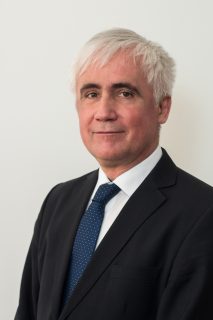We celebrate the 30th anniversary of launching the University’s German-language veterinary training programme this year.
 The German-language veterinary training programme was launched here at the University of Veterinary Medicine 30 years ago. The early years of the successful programme have undoubtedly contributed to the University’s growth and have helped us to remain in the international elite of veterinary education ever since. On the occasion of this round anniversary, we interviewed Dr. Tibor Bartha, the University’s vice-rector for international affairs to discuss the memories of the past 30 years.
The German-language veterinary training programme was launched here at the University of Veterinary Medicine 30 years ago. The early years of the successful programme have undoubtedly contributed to the University’s growth and have helped us to remain in the international elite of veterinary education ever since. On the occasion of this round anniversary, we interviewed Dr. Tibor Bartha, the University’s vice-rector for international affairs to discuss the memories of the past 30 years.
University of Veterinary Medicine Budapest: How do you remember the arrival of the first German students?
Dr. Tibor Bartha: Hungarian veterinary education dates back to 232 years of continuous tradition, with the academic programme launched in each and every year. Our University’s scientists are known and acclaimed all over the world; some even have diseases named after them. The arrival of the German students showed that teaching foreign students in a foreign language had a positive effect on our education programme and we could meet their expectations, too. The launch of the German programme required us to bring a new approach into our education because these students came from a different cultural background so we had to learn how to teach foreign students and how to do so in German in particular. Launching the German programme had an astounding impact on the life of the University at the time and it triggered a development process. We learnt a lot from them and they also learnt a lot from us, of course. I think it’s still an ongoing process.
Univet: In your opinion, how did the launch of the programme change the University’s life?
TB: The arrival of the German students brought an enormous change because we weren’t sure if we could teach classes and train students in a foreign language. Our Hungarian programme worked efficiently. The challenge was to adapt the existing good practices to foreign language education. Fortunately, we managed to do it very well. In fact, the foreign programme even helped us understand what we should do differently in Hungarian training. After a few years of successful operation, the German programme served as the foundation to create the English education. I dare say we wouldn’t have been able to launch the English programme without the previous experience of teaching in a foreign language. We now have more students in the English programme than in the German and the Hungarian ones combined. We are proud to be one of the most international campuses and we ultimately owe it to the German training.
Univet: What’s your opinion about German students? How are they different from Hungarian ones?
TB: I like German students very much, they are much more organized: no matter what their instructors demand from them, they perform it in the expected quality. Since I don’t teach them, I, unfortunately, have much less contact with them than the English students but I find them very talented and diligent. The only general difference between Hungarian and foreign students can be best described by how Hungarian students always sit on the benches while foreign students sit wherever the sunshine is, no matter if it’s the lawn or the middle of the campus road.
Univet: Foreigners often refer to the University of Veterinary Medicine as one of the most international campuses. How can our students benefit from that?
TB: I don’t think there’s any other veterinary college with such a high rate of foreign students. Also, if you look at how many countries our students come from, we can safely state that ours is one of the most international campuses. Seeing this opportunity, I often urge our foreign and Hungarian students to network and make friends during their college years because not only can they find lifelong friends but they can help each other to gain experience abroad, too. It’s one of our key objectives to help students to bring home knowledge and experience from abroad and utilize it here as well.
Univet: This year we celebrate the 30th anniversary of launching the University’s German-language training programme. We will commemorate the occasion by organizing the 1st Univet Oktoberfest as part of the Marek Days. What’s your message to the students?
TB: I believe the 1st Univet Oktoberfest is a great initiative because beer tends to bring people together: everybody speaks the language of beer. This event is an excellent opportunity for students to mingle because it’s much easier to make friends over a good beer and sausage. By organizing events like this, the University enables students to network and adapt to life in another institution and another city.
